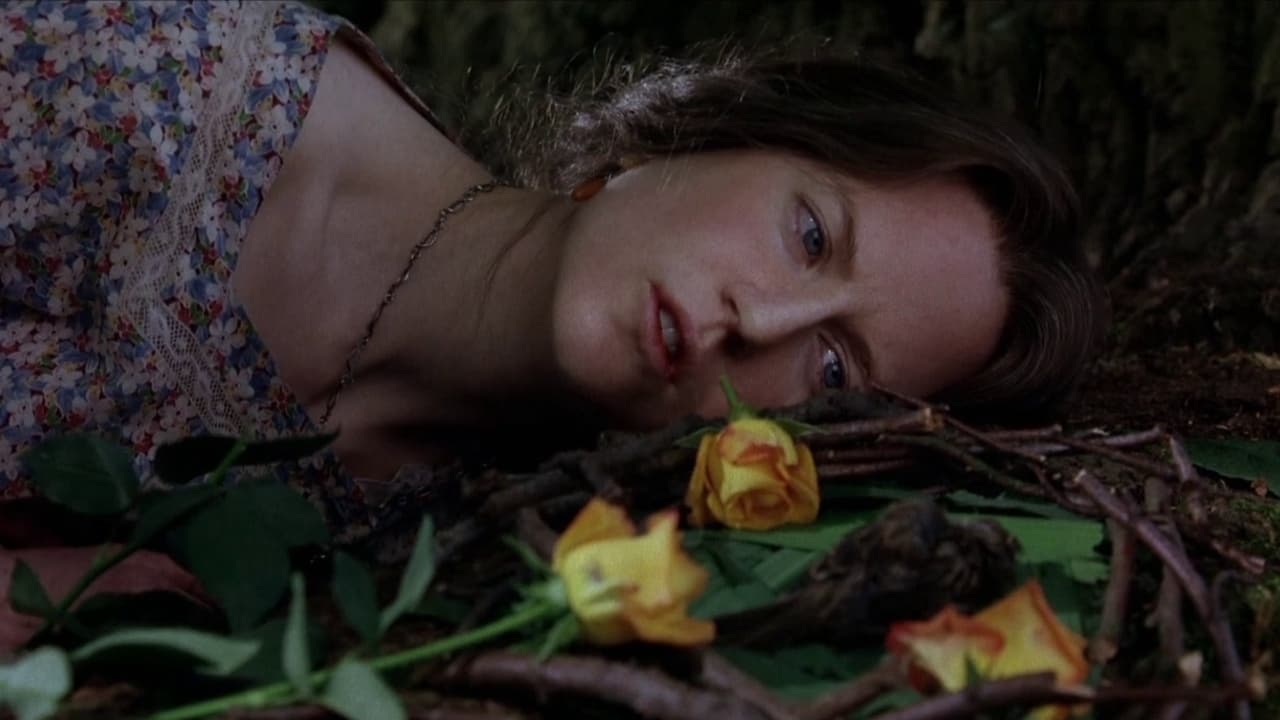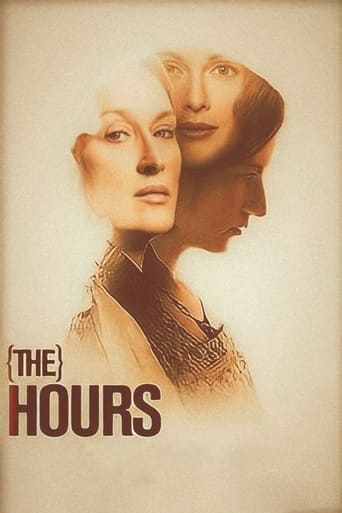alexdeleonfilm
image1.jpeg"THE HOURS" ~ The story of how the novel "Mrs. Dalloway" affects three generations of women, all of whom, in one way or another, have had to deal with suicide in their lives. Misdirected and spewed forth for Paramount by a director named Stephen Daldry this extremely overrated motionless motion picture was viewed at the 2003 Berlin film festival. The morning press screening of "The Hours" (with Nicole Kidman as Virginia Woolf) in the Big Hall helped me catch up on some sleep lost the night before. Crashingly expensive BORE and the Kidman role could have been pulled off by any halfway decent high-school actress. Not that Nicole was bad, just that the role is zilch – Anybody can play a zombie with a false nose. But the other parts of the film (it's a three part movie) were even worse. The Ed Harris/Meryl Streep segment could have been excised totally without missing a beat. Who wants to watch Ed Harris dying of leprosy on screen as they claim it's really AIDS, and who cares if he left Streep years before for a gay boyfriend? – and now she's living in a lezzy affaire with another woman whom she kisses repeatedly on the mouth.The only one of the three parallel stories that held my interest at all was the LA segment with Julianne Moore, but only because of her – because for my money Moore is the best actress in Hollywood –the new Bette Davis! But the overall story line with three extremely dull people building their private lives around the depressing suicide centered Woolf novel "Mrs. Dalloway" was one long embarrassing bore straining painfully for meaning while falling flat on its face. For me the film was over when Kidman (as Virginia Woolf) went under without so much as a blug-blug in the first three minutes of the pre-titles sequence where she commits suicide by calmly walking into a local lake. This picture should have jumped into the lake before it was released. The fact that it swept up multiple Oscars including a Best Actress for Ms.. Kidman he following February is proof positive of the meaningless of the annual Let's all pat ourselves on the back Ritual known as The Academy Awards. I cannot help but agree with the assessment of another IMDb reviewer who called it the Usual Feminist Garbage and said: "This was so awful it's a shoo-in for Best Picture". Amen.Bottom Line: Crashingly Expensive Bore with a bashingly bad nose-job
ElMaruecan82
Stephen Daldry's "The Hours" is a quiet and deep movie, of unprecedented narrative, that manage to keep us hooked to the stories of three different women, from different eras, at one pivotal day of their respective lives where they contemplate suicide, not directly for one of them.Nicole Kidman is Virginia Woolf, the famous author and feminist pioneer whose depression and mental vulnerabilities turned her to an acute spokesperson of the ennui the female bourgeois underwent from years of repressed passions and repressed responsibilities. Julianne Moore is Laura Brown, a typical suburban housewife of the 50's who would be the embodiment of marital happiness if deep inside, it wasn't just sheer emptiness. She feels a more genuine connection with a coquette and charming neighbor played by Toni Colette, but there's more than lesbian impulses torturing this heart. Finally, Clarissa Vaughan is a woman of the 21st century; she is bisexual, lives with a woman, has a daughter and helps a long-time friend named Richard, an AIDS-stricken poet played by Ed Harris. He's the most complex male character of the film and that he's agonizing with lucid resignation sort of connects him with the female plights.But "The Hours" doesn't try to deliver a feminist statement or any other message about homosexuality; these elements are accessories to the story but not focal points. The real issue is how a woman can feel totally embedded in her life to the point of suffocation, that these feelings, at the most banal occasions of life, can hit like an electric shock and they can't think of anything that is worth being happy for. But the three parallel lives are not without any connection whatsoever, the common thread is Virginia Woolf's celebrated novel, "Mrs. Dellaway", whose protagonist is an upper-class woman named Clarissa like the namesake Vaughan. Now, I didn't read the book, I only got glimpses of the story-line from the writing process during the Woolf's part, its effect on Laura Brown, and the life of Clarissa who represents a modern "Mrs. Dellaway".That I didn't read the book yet could feel what it was about from these meager but insightful hints says a lot about the remarkable construction of "The Hours". It probably kept the key elements of the book and diluted it into the lives of the three protagonists, the central question being death. Woolf knows that her book must feature one for the value of life can't be grasped if one doesn't die. She's an author and like so, doesn't believe in anything gratuitous happening, there must be a reason. Laura is sick of her life but rather than committing the irreparable act, she surrenders to her weakness, her deep love for her son. But later when she reappears, she mentions the premature death of her husband and her second child, and for some reason, there's not one ounce of grief, or guilt. It could be the passing of time, but the reality is that it was destiny showing her mercy and terminating her hellish boredom while she didn't have the guts to do it by itself.This little help of fate is incarnated by the climactic suicide committed by Richard, an act of despair and generosity toward the woman who dedicated so much time for him instead of thinking for herself. Indeed, all through that fateful day, Clarissa was busy preparing a reception for him, either being disconnected to her girlfriend (Alison Janney) or having a nervous breakdown when one of Richard's former friends, a teacher played by Jeff Daniels, comes to visit. Clarissa seems to live by proxy through that constant preoccupation which Richard mercifully terminated by putting an end to his misery. By that moment, we know he was the son of Laura, who was selfishly left in a house so she could go somewhere…. and nowhere, it's like that fateful day instilled something of Woolf's suffering in his life, something that contemplated the passing of time, of hours, with an incapability to find form of happiness. Some kill themselves, some wait for death, some wait for the others to die.There's something of the 'Get busy living' or get busy dying'" in that movie, the idea that not anyone can afford happiness and they must set the example to those who can, it's an act of sacrifice and human generosity. "The Hours" isn't a film for any audience and might easily be deemed as women's movie or artsy intellectual stuff but it says a lot more, that can even appeal to male. Maybe if the film was made today, it would have adopted a militant tonality, but I appreciate that the male characters were rather gentle and understanding people, who couldn't just reach the tortured souls of their wives. There's a failure of communication that men also owe to these years of domination, not that a lot changed in sixty years. When it comes to existential melancholy, some things can't just change.And "The Hours" is served by impeccable performances from Nicole Kidman, unrecognizable as Virginia Woolf, to the poignant vulnerability of Julianne Moore. Streep was nominated for "Adaptation." that year, but I don't know if she would have been nominated for "The Hours" anyway, she was good, but she played her usual vulnerable self, and it's so common from a 2000's standpoint that it surprises less than Kidman and Julianne who still had to hide being the façade of conveniences, they had it harder.And it's not a coincidence that Clarissa was the only one not to contemplate suicide.That might be the light of hope, maybe the ending is a happy now, at least, in the scale of unhappiness that forged women's lives all these years?
Kirpianuscus
It is not exactly a good film. or a masterpiece. or the perfect choice for Oscar. it is not only a remarkable adaptation. because the acting transforms all. the novel, the expectations, the respiration of Michael Cunningham lines, the rhythm, the details. three great actresses are masters of a subtle, impressive, complex transformation of a story who becomes almost magic. axis - a character who guides the life of each movement, who propose new manners to understand the life, who becomes a kind of spirit who has as guest each of the women looking her form of happiness. The Hours remains a revelation at each new view. and that fact is not surprising because it is more than an extraordinary film but a sort of mirror for his public. a film of delicate nuances. and one of refuges for rediscover the meanings of life.
KINGJO4606-1
* Contains Spoilers* This may be a strange interpretation; it seems that the more conventional interpretation of this movie is that it demonstrates the unhappiness of women enmeshed in a patriarchal society. But if you take a closer look at the characters, you may get a sense of what I am talking about. Virginia Woolf tries to commit suicide twice in the movie and yet has servants who, at the behest of Virginia, are willing to go far into town to fetch ginger as an ingredient for a meal. Julianne Moore's character, despite having a bread-winning husband who establishes a secure, middle-class standing for her, is nevertheless unsatisfied with her routine life and moves away from her family after having her second child. Meryl Streep's character has to deal with a suicidal man who, despite having AIDS, writes a successful book that has won the acclaim of the world's best book critics. Both Virginia and the suicidal man commit suicide despite having access to the world's best doctors and psychologists. All three characters are well-off and nevertheless unhappy; they are thus all greedy and discontent. And their wealth seems to engender their unhappiness and greediness.*Contains Spoilers* There are obviously a lot of holes you can poke in my theory. Julianne Moore's character admits that she was happier as a librarian in Canada than as a housewife in the United States. Virginia admits that everyone is responsible for her own happiness and standing in life. The suicidal man's lover admits that he was happier after leaving him, and Meryl Streep's character understands why Julianne Moore's character sought a new life. I guess I am basing my argument on the assumption that the characters were not that much happier after making the decided changes. After all, the whole movie seems morose. If Meryl Streep's character has a hard time understanding what it takes to be happy, then how can she know whether or not Julianne Moore's character was that much happier after deciding to move away from her family? (Important to note that Meryl Streep's character was unhappy despite being surrounded by successful people. The suicidal man kills himself; he does this because he never felt loved by the mother who abandoned him (i.e. Julianne Moore's character.)) Thought-provoking movie. It is not as morose as the critics claim.7/10

